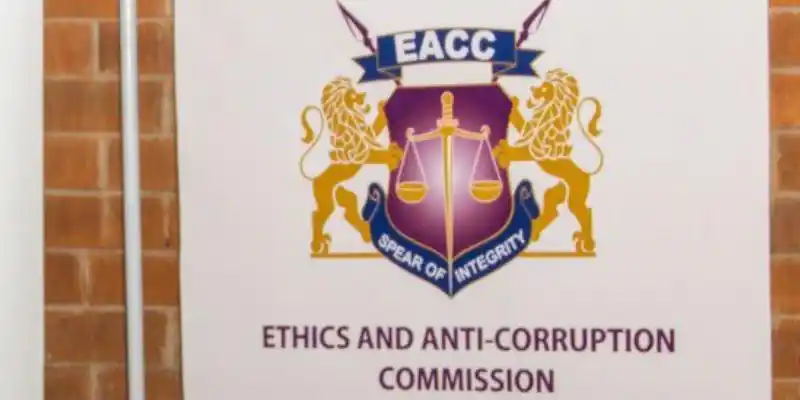Kenya’s Ethics and Anti-Corruption Commission (EACC) has uncovered extensive corruption in State agencies and counties, including cases of bribery, embezzlement, conflict of interest, and the use of forged academic credentials.
The findings were detailed in the EACC’s latest quarterly report, implicating entities such as the Independent Electoral and Boundaries Commission (IEBC), National Police Service, Nairobi City Water and Sewerage Company (NCWSC), and Kenya Rural Roads Authority (KeRRA).
At KeRRA, investigations are ongoing into three cases involving senior accountants. One accountant based in the western region allegedly influenced the awarding of 27 tenders worth KSh146 million to a company in which he is a director.
Another accountant in Turkana is linked to four companies that received 31 tenders totalling KSh216.9 million, with over KSh108.5 million allegedly obtained through irregular procurement.
A third officer in Kajiado is being investigated for awarding herself five tenders while employed by the authority.

At the IEBC, fake academic credentials have surfaced as a major issue. Investigators revealed cases of staff using forged degrees to secure employment or promotions.
One regional ICT officer forged an IT degree to gain his position, earning KSh8.7 million in salary since 2017. Similarly, two assistant election officers submitted fake certificates to upgrade their job grades.
The NCWSC is also under scrutiny, with employees found to have used falsified academic and secondary school certificates to secure jobs.
A marketing officer who forged a Kenya Certificate of Secondary Education (KCSE) qualification earned KSh8.2 million in salaries before the fraud was detected.
The National Police Service is not exempt, with cases of bribery being investigated. These include officers soliciting bribes for recruitment, release of detained vehicles, and verification of bond documents.
The EACC forwarded 50 files for action by the Director of Public Prosecutions (DPP) between July and September 2024, recommending prosecution in 47 cases. However, no prosecutions have commenced, with the DPP accepting only four cases and returning 22 for further investigation.


